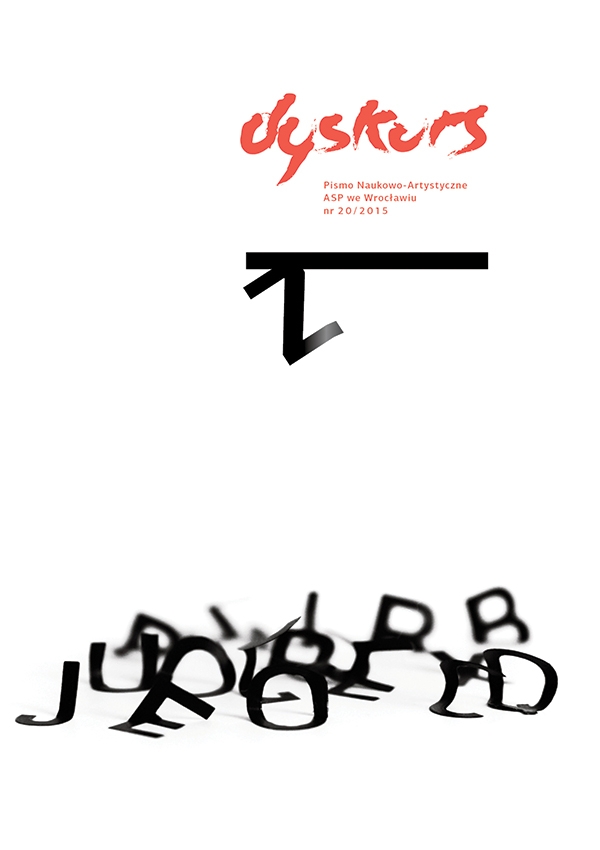Zmysły, ściana i dziura
Słowa kluczowe:
percepcja, zmysły, intuicja, obraz, scena, literatura, perception, senses, intuition, picture, scene, literatureAbstrakt
SENSES, WALL AND HOLE
Literature and art are bound together based on words used in the context of different senses. Firstly: hearing. How literature is connected with music? Considering poetry, it is a simple problem: poems include rhythm, so they are a form of music score. Prose, however, includes images, scenes, therefore the pieces of prose rather resemble scenography. Soundless images are music-like when they are connected with psychological entanglements, too difficult or too subtle to talk about them in simple terms. Music reveals their innocent, almost self-evident ordinariness. Therefore, without going into the theory, in the section on hearing I’m talking rather about non-hearing and incompatibility of music and poetic/prosaic ‘scores’. I refer to the natural white spots or ‘holes’ connected with hearing and feeling as they were discussed by Norwid, de Sade and Kafka. It is impossible to express them through an established medium – words, sound or video.
Second: sight. A piece of literature, when ‘translated’ to images, becomes integral illustration of the text as in Winnie the Pooh, The Little Prince and Alice in Wonderland. Writers and illustrators reveal their deeper, not necessarily conscious, psychic reality. Alice reveals includes the deformation of character as the result of the real internalized pressures of cultural control. This ‘oppressed’ sphere in Alice and then in its film adaptation by Disney was connected with sexuality, therefore the analysis concerns deformation the artist is influenced by external pressure and mitigation he accepts or conceals the existence of pressure.
Thirdly – touch. Touch is erotic. Touching walls built into the nature by culture is erotic, although the fact may horrify and sicken us.
Fourth – intuition sixth sense or sensus sacralis. This is the digression towards the art of describing metaphysics, which originally was mathematics.
Fifth: balance. Art-pieces ‘speak’ while revealing their ‘fullness’ or also through the symbolic connotations of their appearance, and the circumstances in which perception occurs. As example, I chose poetic book by Andrzej Bednarczyk entitled Temple of the Stone.
Sixth and final: the taste. Taste is the ultimate factor in the process of perception of art. Can we literally understand that statement? Is taste really a part of the perception of literature? Referring to the Bible, the Book of Ezekiel, I try to find confirmation for my presumption that from the moment of putting it in writing and thus alienating literature from its organic aspect, we are dealing with something fragmentary, incomplete, mutilated.

